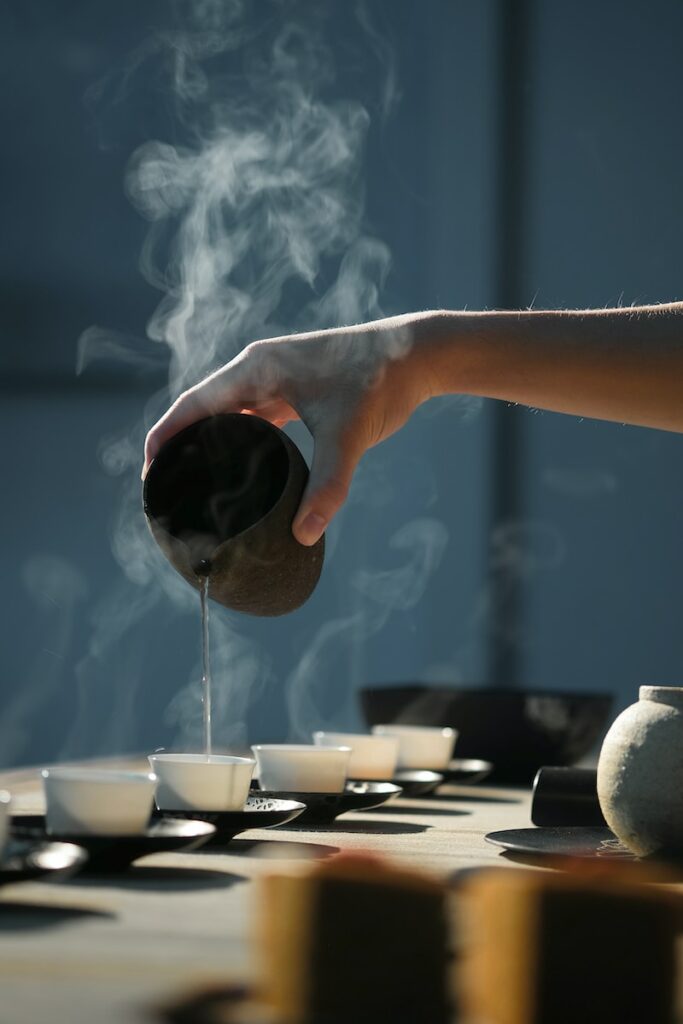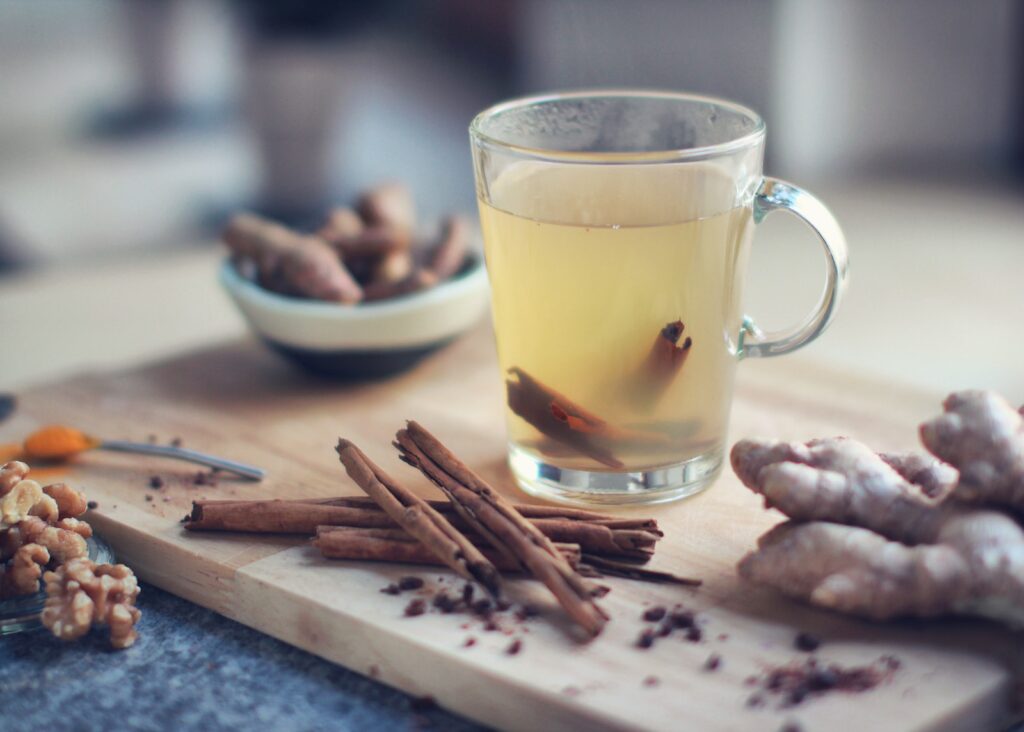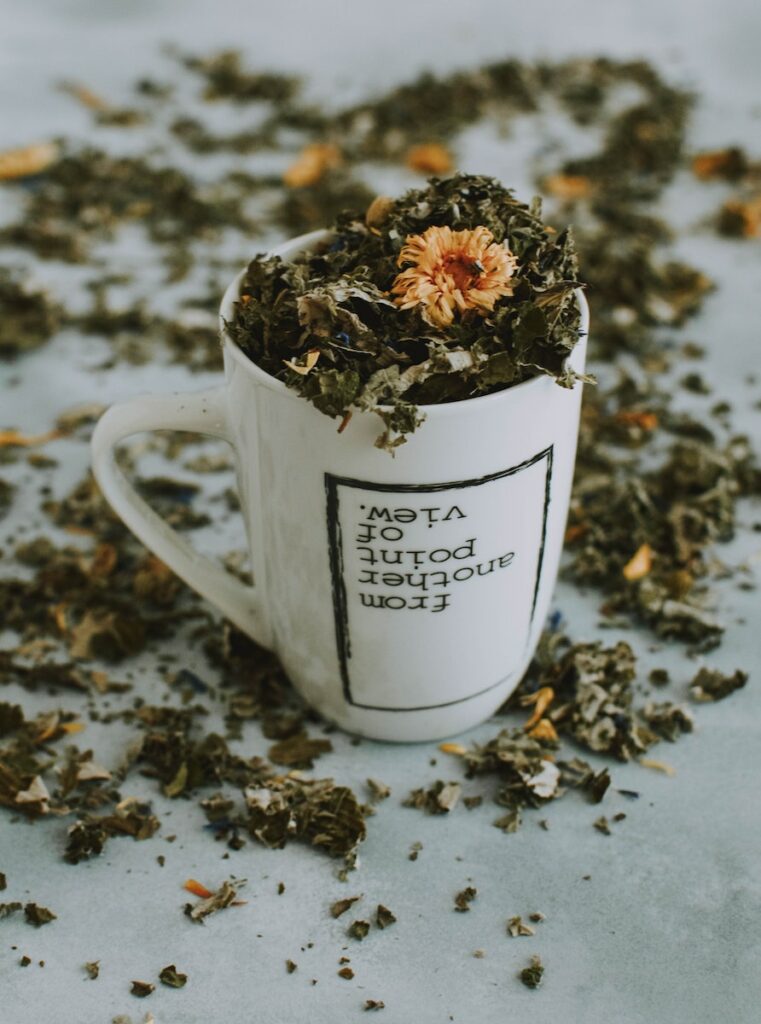This article explores the reasons why people have a fondness for tea, specifically looking at various herbal tea recipes that can help alleviate mild depression. Tea has long been cherished for its soothing and calming properties, and it is no wonder that individuals turn to it during times of emotional distress. By examining some herbal tea recipes, this article aims to shed light on the potential benefits of tea as a natural remedy for mild depression.
Benefits of Tea
Tea has long been celebrated for its numerous health benefits and its ability to improve overall well-being. In this article, we will explore the benefits of tea, specifically its positive effects on mood, stress reduction, and relaxation.
Improved Mood
One of the key benefits of tea is its ability to improve mood. Tea contains natural compounds that have been found to elevate serotonin and dopamine levels in the brain, which are responsible for regulating mood and emotions. Regular consumption of tea has been found to help alleviate symptoms of mild depression and anxiety, promoting a more positive outlook on life.
Reduced Stress
Another significant benefit of tea is its ability to reduce stress. Tea contains various compounds, such as L-theanine, that have been shown to have a calming effect on the body. These compounds help to promote relaxation and reduce stress levels, making tea a great choice for those looking for natural ways to manage and reduce stress.
Enhanced Relaxation
Tea is also known for its ability to enhance relaxation. The ritual of making and enjoying a cup of tea can have a soothing and calming effect on the mind and body. Drinking tea can create a sense of mindfulness and tranquility, allowing individuals to unwind and recharge. This can be particularly beneficial for those dealing with mild depression or other mood disorders.
Understanding Mild Depression
In order to fully appreciate the benefits of herbal tea for mild depression, it is important to understand what mild depression is and how it can affect individuals.
Definition
Mild depression, also known as dysthymia, is a form of chronic low-grade depression that lasts for an extended period of time, typically two years or more. It is characterized by persistent feelings of sadness, a lack of interest or pleasure in activities, changes in appetite and sleep patterns, low energy, and a general sense of hopelessness. While not as severe as major depression, mild depression can still have a significant impact on daily functioning and overall quality of life.
Causes
The exact causes of mild depression are not completely understood, but it is believed to be the result of a combination of genetic, biochemical, environmental, and psychological factors. Some individuals may have a genetic predisposition to developing depression, while others may experience an imbalance of certain chemicals in the brain that regulate mood. Environmental factors, such as chronic stress or traumatic life events, can also contribute to the development of mild depression.
Symptoms
The symptoms of mild depression can vary from person to person, but commonly include persistent feelings of sadness or a low mood, a loss of interest or pleasure in activities, changes in appetite and sleep patterns, decreased energy and motivation, difficulty concentrating or making decisions, and feelings of worthlessness or guilt. It is important to note that these symptoms may not be as severe as those experienced with major depression, but can still have a significant impact on daily life.

Herbal Tea for Mild Depression
When it comes to managing mild depression, herbal tea can be a natural and effective option. Herbal teas are made from a variety of plants and botanicals that contain compounds that can help elevate mood and reduce symptoms of depression. Here are three herbal teas that have been particularly effective in improving mood and promoting overall well-being.
Lemon Balm Tea
Lemon balm tea is derived from the leaves of the lemon balm plant, which is a member of the mint family. This herbal tea has been used for centuries to promote relaxation and improve mood. Lemon balm contains natural compounds, such as rosmarinic acid and flavonoids, that have been found to have a calming effect on the mind and body. Regular consumption of lemon balm tea can help reduce symptoms of mild depression and anxiety, promoting a more positive outlook on life.
Chamomile Tea
Chamomile tea is made from the flowers of the chamomile plant and is known for its calming and soothing properties. This herbal tea has been used for centuries to promote relaxation and reduce anxiety. Chamomile contains natural compounds, such as apigenin, that have been found to have a sedative effect on the central nervous system. Drinking chamomile tea can help reduce feelings of stress and promote a sense of calm, making it an excellent choice for those dealing with mild depression.
Lavender Tea
Lavender tea is made from the flowers of the lavender plant and is well-known for its relaxing and aromatic properties. This herbal tea has been used for centuries to promote relaxation and improve sleep. Lavender contains natural compounds, such as linalool and linalyl acetate, that have been found to have a calming effect on the mind and body. Drinking lavender tea before bed can help promote a restful night’s sleep and reduce symptoms of mild depression.

Lemon Balm Tea Recipe
Making your own lemon balm tea at home is simple and easy. Here is a basic recipe to get you started:
Ingredients:
- 1 tablespoon of dried lemon balm leaves
- 1 cup of water
Instructions:
- Bring the water to a boil in a small saucepan.
- Once the water reaches a boil, remove it from the heat.
- Add the dried lemon balm leaves to the hot water.
- Cover the saucepan and let the tea steep for about 5-10 minutes.
- Strain the tea into a cup using a fine-mesh strainer.
- Enjoy your homemade lemon balm tea!
Chamomile Tea Recipe
Making your own chamomile tea at home is quick and easy. Here is a simple recipe to follow:
Ingredients:
- 1 chamomile tea bag or 1 tablespoon of dried chamomile flowers
- 1 cup of boiling water
Instructions:
- Place the chamomile tea bag or dried chamomile flowers in a cup.
- Pour the boiling water over the tea bag or flowers.
- Let the tea steep for about 5-10 minutes.
- Remove the tea bag or strain out the chamomile flowers.
- Sip and enjoy your homemade chamomile tea!
Lavender Tea Recipe
Making your own lavender tea at home is a wonderful way to relax and unwind. Here is a simple recipe to follow:
Ingredients:
- 1 tablespoon of dried lavender flowers
- 1 cup of boiling water
Instructions:
- Place the dried lavender flowers in a tea infuser or teapot.
- Pour the boiling water over the lavender flowers.
- Let the tea steep for about 5-10 minutes.
- Remove the tea infuser or strain out the lavender flowers.
- Pour the tea into a cup and enjoy your homemade lavender tea!
Other Herbal Tea Options
While lemon balm, chamomile, and lavender are great options for managing mild depression, there are several other herbal teas that can also be beneficial. Here are three additional herbal teas that have been found to improve mood and promote relaxation.
Peppermint Tea
Peppermint tea is made from the leaves of the peppermint plant and is known for its refreshing and invigorating properties. This herbal tea has been used for centuries to promote digestion and reduce stress. Peppermint contains natural compounds, such as menthol, that have been found to have a calming effect on the mind and body. Drinking peppermint tea can help reduce symptoms of mild depression and improve overall well-being.
Ginger Tea
Ginger tea is made from the root of the ginger plant and is renowned for its warming and soothing qualities. This herbal tea has been used for centuries to promote digestion and reduce inflammation. Ginger contains natural compounds, such as gingerol, that have been found to have anti-inflammatory and mood-boosting properties. Drinking ginger tea can help reduce symptoms of mild depression and enhance overall mood.
Valerian Root Tea
Valerian root tea is derived from the root of the valerian plant and is well-known for its calming and sedative properties. This herbal tea has been used for centuries to promote sleep and reduce anxiety. Valerian root contains natural compounds, such as valerenic acid, that have been found to have a relaxing effect on the mind and body. Drinking valerian root tea can help reduce symptoms of mild depression and promote a restful night’s sleep.
Peppermint Tea Recipe
Making your own peppermint tea at home is simple and refreshing. Here is a basic recipe to follow:
Ingredients:
- 1 tablespoon of dried peppermint leaves or 1 peppermint tea bag
- 1 cup of boiling water
Instructions:
- Place the dried peppermint leaves or peppermint tea bag in a cup.
- Pour the boiling water over the peppermint leaves or tea bag.
- Let the tea steep for about 5-10 minutes.
- Remove the tea bag or strain out the peppermint leaves.
- Sip and enjoy your homemade peppermint tea!
Ginger Tea Recipe
Making your own ginger tea at home is quick, easy, and a great way to warm up. Here is a simple recipe to follow:
Ingredients:
- 1 tablespoon of grated fresh ginger or 1 ginger tea bag
- 1 cup of boiling water
Instructions:
- Place the grated ginger or ginger tea bag in a cup.
- Pour the boiling water over the ginger.
- Let the tea steep for about 5-10 minutes.
- Remove the ginger or strain out the ginger tea bag.
- Sip and enjoy your homemade ginger tea!
Precautions and Considerations
While herbal tea can be a natural and effective option for managing mild depression, it is important to keep a few precautions and considerations in mind.
Consulting a healthcare professional
If you are experiencing symptoms of depression, it is important to consult a healthcare professional for a proper diagnosis and treatment plan. They can provide guidance and support and help determine if herbal tea is a suitable option for your individual needs.
Potential side effects
While herbal teas are generally considered safe, some individuals may experience mild side effects, such as gastrointestinal upset or allergic reactions. If you experience any adverse reactions or discomfort after consuming herbal tea, discontinue use and consult with your healthcare professional.
Dosage recommendations
The appropriate dosage of herbal tea can vary depending on the specific tea and individual. It is advisable to follow the instructions provided with the tea or consult a healthcare professional for guidance on dosage recommendations.
In conclusion, herbal tea can be a natural and beneficial option for managing mild depression and promoting overall well-being. Lemon balm, chamomile, and lavender tea are particularly effective in improving mood, reducing stress, and enhancing relaxation. Additionally, other herbal teas such as peppermint, ginger, and valerian root can also provide similar benefits. However, it is important to consult a healthcare professional, be aware of potential side effects, and follow dosage recommendations when using herbal tea as a supplement for managing mild depression.



